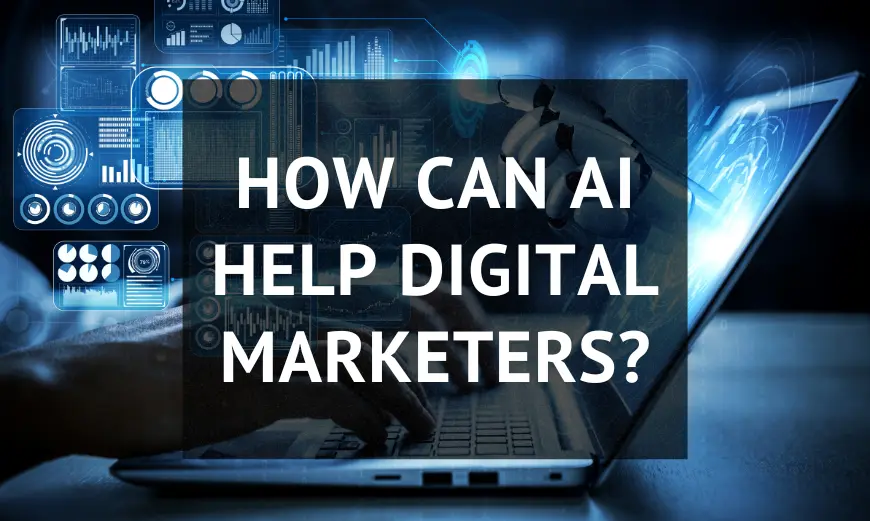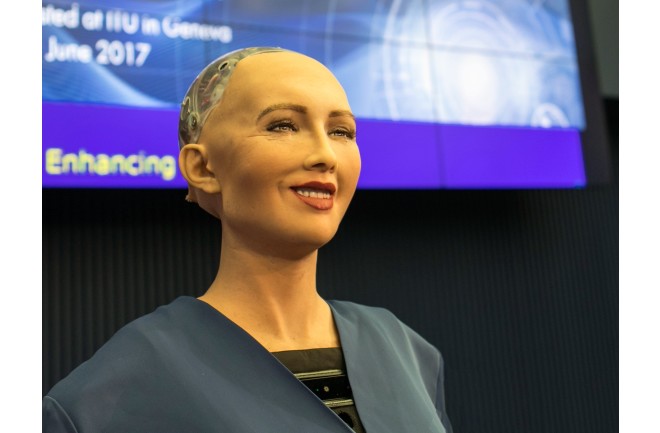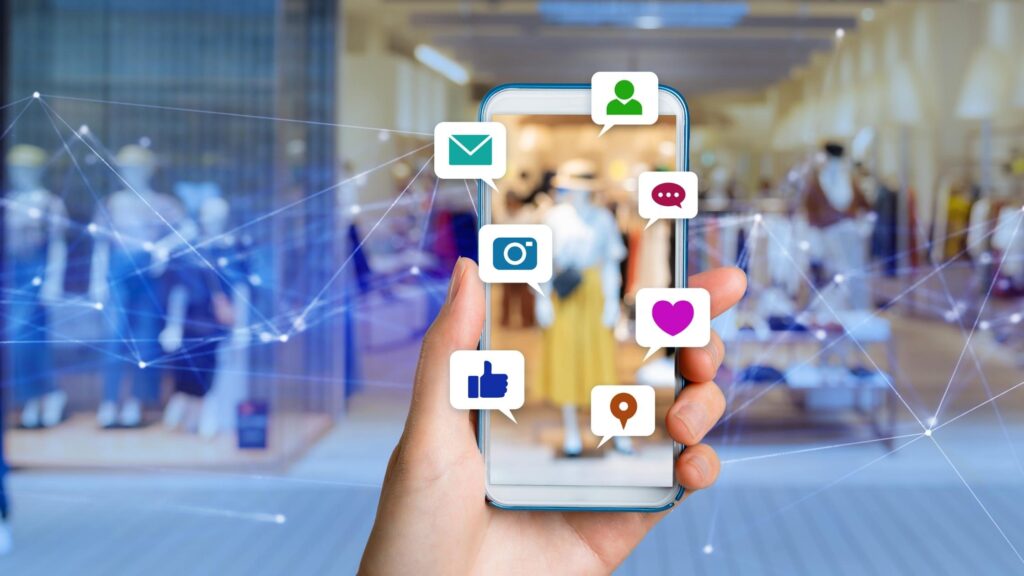In today’s fast-paced world, where convenience, speed, and digital communication are highly valued, we see more artificial intelligence (AI) incorporated into our everyday routines. Digital marketing has undergone significant changes due to the influence of AI.
This article will explore how How can AI help digital marketers by transforming the digital marketing industry, making it more efficient, personalized, and data-driven.
AI-Powered Social Media Marketing: Connecting Brands and Audiences
When integrated with AI, Social Media Marketing is emerging as an increasingly potent tool that effectively bridges the gap between brands and their target audiences. Additionally, it utilizes artificial intelligence to enhance marketing strategies and improve engagement on various social media platforms. By leveraging AI technology, brands can effectively reach and connect with their desired audience. As a result, they can ultimately drive better results and achieve their marketing goals.
Furthermore, social media has allowed brands to connect with their audience directly. However, what truly stands out is the significant impact that AI has had on social media marketing. In today’s world, AI-powered algorithms can analyze vast user data. Not only can they understand consumers’ behavior and preferences, but they can also predict their purchasing patterns.
The AI’s ability to analyze data in great detail has greatly improved audience targeting accuracy, making it a more precise science than ever before. This allows companies to customize their content in a strategic way to attract specific groups of consumers. AI not only assists in generating relevant content but also ensures that it reaches the people who find it most interesting and valuable. The outcome is a user experience that feels more tailored to each individual, which helps to increase how engaged the audience is and strengthens their loyalty to the brand.
Chatbots and virtual assistants as new customer service representatives
Customer service has drastically changed with the introduction of AI-powered chatbots and virtual assistants. These tools now handle customer interactions, giving immediate responses to questions at any time of the day. However, these machines are not just question-answer robots. They can learn from each interaction, continuously enhancing the quality of their responses.
In addition, these tools gather and analyze data from consumers in real time, giving us valuable insights into how customers behave and feel. The information in this data is extremely valuable for marketers. They can use it to make their marketing strategies better by understanding what consumers want and improving how satisfied customers are.
AI-Powered influencer marketing
Recently, influencer marketing has become a powerful strategy for naturally growing brands. As more and more brands jump on the influencer bandwagon, AI is proving to be a helpful tool in finding the right influencers whose followers match the brand’s target audience. AI systems can analyze various aspects of social media, such as how much people interact with posts, followers’ characteristics, and content quality. This allows them to select the influencer most likely to increase brand visibility and credibility.
Social Listening with AI
Using AI for social listening lets us stay in touch with current trends and online conversations. It helps us keep our finger on the pulse of what people are talking about and what matters to them. AI has greatly improved the practice of social listening, which involves monitoring online conversations to gain insights into what customers are saying about a brand. AI-powered tools can track keywords, phrases, and brand mentions to capture the overall sentiment online surrounding a brand. The data collected can be utilized to develop marketing strategies that effectively target the interests and concerns of current customers.
Some success stories of AI in digital marketing
For instance, companies such as Netflix, Facebook, Spotify, and Levi’s are great examples of how AI is effectively utilized in marketing. Furthermore, Netflix effectively utilizes artificial intelligence technology to gain valuable insights into the preferences of its viewers. This feature enables users to curate a personalized collection of TV shows and movies handpicked to suit their individual preferences. To combat the spread of false information on its platform, Facebook utilizes artificial intelligence (AI). This strategic implementation helps enhance user trust and engagement and plays a pivotal role in the fight against misinformation.
Additionally, Spotify utilizes AI technology to recommend music and create personalized playlists for users, carefully considering their unique listening history. Moreover, Levi’s app seamlessly integrates AI technology to effectively assist customers in discovering their ideal pair of jeans. Consequently, this innovative approach increases customer satisfaction and substantial sales growth. And now this one will amaze you, Levi’s will test AI-generated clothing models to ‘increase diversity’.
What is the future of AI?
The future of artificial intelligence (AI) is incredibly promising, and it has the potential to transform various industries and aspects of our daily lives. Here are several ways in which AI is expected to evolve:
Automated Decision-Making:
AI algorithms can make decisions based on broader factors as they become more complex. This will likely be applied in various fields, from healthcare to finance.
Augmented Reality and Virtual Reality:
Integrating AI in AR and VR could provide more immersive, personalized experiences. This may transform everything from gaming to professional training and teleconferencing.
AI in Healthcare:
According to experts, it is anticipated that AI will have a profound impact on the healthcare industry. This impact will be seen in various ways, such as enabling personalized medicine based on a patient’s genetics and facilitating early detection and prevention of diseases through predictive analysis.
Personalized Education:
AI can customize learning to students’ needs, helping them understand concepts more effectively. In the future, AI could completely reshape the education landscape.
AI in Space Exploration:
AI can analyze vast amounts of data from space, assist in navigating spacecraft, and even help us understand alien environments. NASA and other space agencies already use AI and plan to increase its role in future missions.
Human-Like AI Bots:
The future of AI also holds tremendous potential for developing AI bots that closely resemble human behavior. Advanced conversational AI systems, sometimes known as chatbots, are becoming more adept at understanding and responding to human language, emotion, and nuance.
These human-like AI bots are not just about mimicking human conversation. They are also about understanding and interpreting context, emotion, and individual preferences to provide responses that are not just accurate but also emotionally appropriate and personalized. As we progress, these AI bots are expected to become virtually indistinguishable from human interaction, revolutionizing our relationship with technology.
Remember, the potential future of AI is limitless and largely depends on human imagination, research, and ethical considerations. It’s an exciting field with immense potential, and we’ve only scratched the surface of what’s possible.
Conclusion
AI has had a significant and extensive impact on digital marketing. Additionally, automation saves time by efficiently handling tasks that would otherwise be time-consuming. It also provides valuable insights into consumer behavior, enabling a more personalized customer experience. Furthermore, it is also transforming how brands engage with their audience. AI. As they progress, technologies will play a bigger and more important role in digital marketing.
To stay ahead of the curve, digital marketers actively embrace AI and aim to reshape the marketing landscape. Additionally, this involves enhancing the efficiency and personalization of marketing efforts and facilitating strategic decision-making. In today’s fast-paced digital world, marketers can achieve sustainable growth by effectively incorporating AI into their toolkits.



